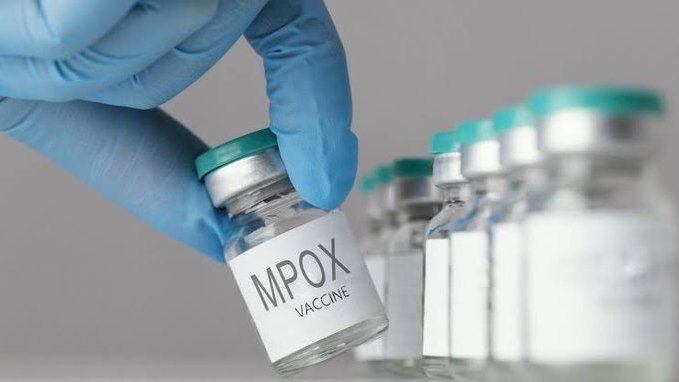
Johannesburg, South Africa – July 19, 2025 | In a decisive public health move, the South African National Department of Health has officially launched the Mpox vaccination programme to curb the escalating spread of the disease. With a rise in laboratory confirmed cases and increasing public concern, this initiative marks a pivotal moment in the country’s effort to contain the viral outbreak.
Why Mpox Vaccination in South Africa Has Become Urgent
Over the past two months, South Africa has reported a growing number of Mpox cases, especially in densely populated provinces like Gauteng and KwaZulu-Natal. According to the National Institute for Communicable Diseases (NICD), over 40 confirmed cases of Mpox have been recorded since May, with transmission occurring both locally and from imported infections.
The Mpox vaccination in South Africa is being rolled out in response to this steady rise, as health authorities aim to prevent further spread within communities. The majority of cases are being reported among men who have sex with men (MSM), although health officials emphasize that the virus can infect anyone through close personal contact.
What Is Mpox?
Mpox, formerly known as monkeypox, is a viral disease similar to smallpox but less severe. It is caused by the monkeypox virus, a member of the Orthopoxvirus genus. Symptoms include fever, rash, swollen lymph nodes, and skin lesions, typically lasting 2 to 4 weeks. Though usually self limiting, severe cases can occur, particularly in immunocompromised individuals.
Transmission happens through close contact with lesions, body fluids, respiratory droplets, or contaminated materials. In recent outbreaks globally, Mpox has largely been spread through intimate contact.
The Rollout Plan for Mpox Vaccination in South Africa
The Department of Health has confirmed the initial deployment of Mpox vaccines to high risk groups, including:
- Healthcare workers
- Laboratory personnel
- Men who have sex with men (MSM)
- Immunocompromised individuals, especially those with HIV
- Individuals with confirmed exposure to a Mpox case
The vaccine being used is the Modified Vaccinia Ankara (MVA) vaccine, a third generation smallpox vaccine proven to be effective against Mpox.
Dr. Joe Phaahla, South Africa’s Health Minister, said in a press briefing:
“We have secured an initial consignment of vaccines and will prioritize frontline workers and those most vulnerable to the infection. Mpox vaccination in South Africa is not just a protective step it’s a preventive strategy to safeguard public health.”
Distribution Strategy and Partnerships
The Mpox vaccination in South Africa is currently being administered at designated healthcare facilities in Johannesburg, Cape Town, Durban, and Pretoria. The rollout is supported by local clinics, NGOs working with at-risk populations, and international partners including the World Health Organization (WHO) and Africa CDC.
The South African government has also initiated an awareness campaign through social media, local radio, and community outreach to educate citizens about Mpox symptoms, prevention, and the benefits of vaccination.
Public Reaction and Concerns
While many welcome the launch of the Mpox vaccination programme, some civil society groups have raised concerns about stigmatization, particularly targeting MSM communities. In response, health officials reiterated that Mpox is not a sexually transmitted infection and urged media and the public to avoid promoting stereotypes.
Health advocates have also called for increased transparency about vaccine availability and better accessibility for marginalized groups, especially in rural and peri-urban areas.
How to Get the Mpox Vaccine in South Africa
Those who believe they are eligible or have been exposed to Mpox are encouraged to visit local clinics or call the national health helpline at 0800 029 999. The vaccine is currently being provided free of charge, with plans to expand access as more doses arrive in the country.
To ensure a successful vaccination campaign, the Department of Health has urged citizens to:
- Stay informed through verified health channels.
- Avoid close contact with symptomatic individuals.
- Isolate if symptoms develop and seek immediate medical advice.
- Report any suspected Mpox cases to local health authorities.
Mpox Vaccination in South Africa: What Lies Ahead
Experts believe that proactive immunization can dramatically reduce Mpox transmission rates. Countries like the United States, UK, and Spain have already seen declines in cases after mass vaccination efforts. If implemented effectively, the Mpox vaccination in South Africa could similarly flatten the curve and protect high-risk communities.
Dr. Sibongile Mkhize, an epidemiologist at the University of Cape Town, commented:
“Early vaccination is the key to preventing a national outbreak. The current move by the government is timely and commendable.”
Final Word
As South Africa embarks on this crucial health mission, the success of the Mpox vaccination in South Africa will depend on public cooperation, equitable access, and continued government vigilance. The Department of Health remains committed to tracking infections, updating the public, and ensuring that no community is left behind.
Stay Connected with The News Drill for more updates. Stay informed. Stay updated. Stay Ahead.















